The Kansas Corn Experience:
Partnering with USGC to Showcase Kansas Corn Industry
Kansas Corn took part in the biennial Export Exchange hosted by US Grains Council. The USGC is a market development partner for Kansas Corn working to increase US corn, ethanol and distillers grains exports around the world. The event brought in buyers from 35 countries combined into 21 USGC hosted trade teams. Teams had the opportunity to visit corn-producing states either prior to, or after the main buyer/seller meetings held in Minneapolis. Kansas Corn worked with our sorghum partners to host three teams. The first team was from Mexico, the second team from Spain and Portugal more focused on poultry and the final team a mix from five Middle Eastern and Northern African countries. Each buyer who visited Kansas visited a farm, saw how the grain is graded and storage conditions and learned more about the ethanol process and the quality of the distillers grains as a feed ingredient. The buyers represented grain traders, feedlot owners, dairies and poultry producers.
“We heard from many of the buyers that they continue to buy US corn and distillers grains because they get a high-quality, consistent product,” says director of industry relations, Stacy Mayo-Martinez. “International markets are important to Kansas because we currently see about 1/3 of our corn leave the state. In addition, we want to support growing these markets across the world to help further diversify the global market for U.S. corn and distillers grains and in return hopefully bringing more money back to the producer.”
“These opportunities allow us to host the buyers and help them meet the farmers producing the corn they buy. It’s important for them to understand more of how each farmer’s business differs and yet they are all working to produce a good crop each year to meet their customers demands whether they be domestic or international. Each stop helps them build their knowledge for how we produce and move our crop in the U.S. and have confidence in the product they are buying,” says Emily Koop, market development coordinator.
In addition to hosting the groups in Kansas, Mayo-Martinez attended the Export Exchange meetings to network with additional buyers and follow up on relationships built through prior outreach. “Market development is a long-term process, and it’s important to continue to see the same individuals and meet new friends. We are working as the bridge to the Kansas and US farmer so we can sell the story and the confidence for our producers.”
Learn more about each group by reading a short summary of their tours below.
Mexican Grain Importers Trade Team
The team members represent a diverse array of large beef and poultry operations located in the Yucatan Peninsula and northern Mexico, as well as representatives of buying groups, trade companies and feed mills. As a pre-tour to the Export Exchange in Minneapolis, the team experienced firsthand U.S. corn, sorghum and DDGS production and the current crop conditions.
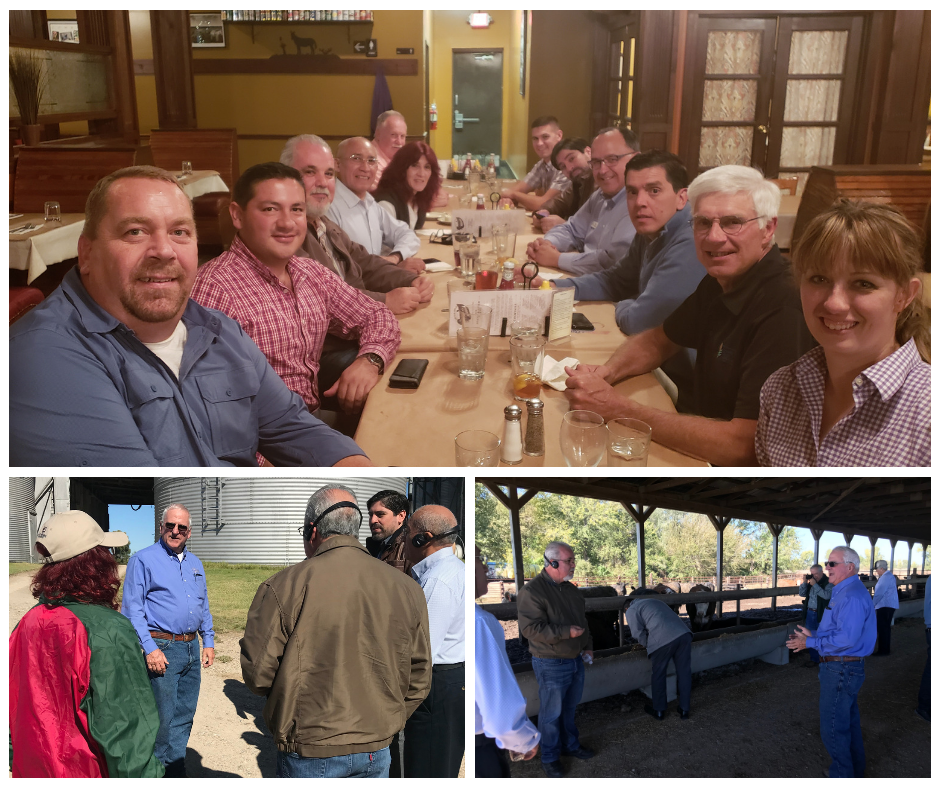
The team started off their visit to Kansas at Nunemaker-Ross Farms and Feedlot outside of Lawrence Kansas where they discussed on-farm storage practices in the U.S. with commissioner, Pat Ross’s and were able to walk through their feedlot operation. Great discussion was had about common feed rations and inclusion of distillers dried grains. Then they traveled to the IGP Institute and O.H. Kruse Feed Technology Center on the Kansas State University campus in Manhattan. They finished up the day with a menu full of Kansas corn-fed dishes during dinner at Little Apple Brewery sponsored by Kansas Corn.
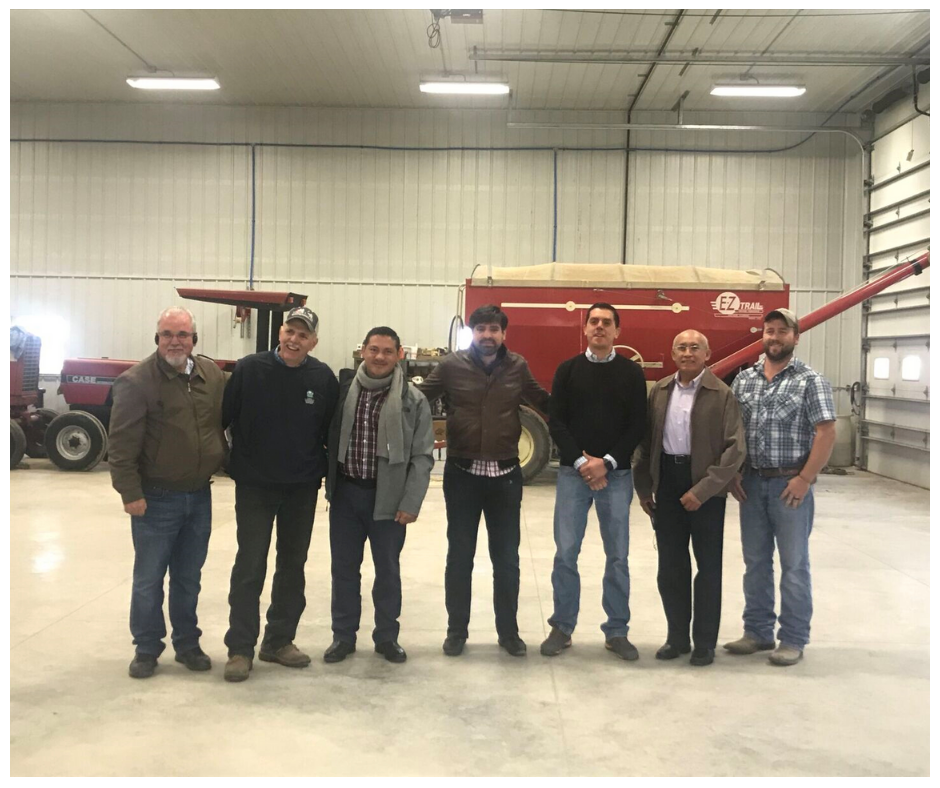
Day two of the tour took the team to the Harris Farm in Abilene, the Mid-Kansas Coop and Team Marketing Alliance facility in Canton and Kansas Ethanol production facility in Lyons. In addition to the farm, Kevin Harris also runs his own crop insurance business. This lead to great conversation around our crop insurance programs and credit systems available in the U.S.
European Union Feed Grain Importer Trade Team
This trade team included key feed grain importers and end-users from Spain and Portugal and allowed them the experience of meeting producers, suppliers and exporters of corn, corn co-products and sorghum. It also allowed them to see firsthand the U.S. feed grain production and learn more about the U.S. marketing system for feed grains and co-products and how grain moves through the logistics channels for export.
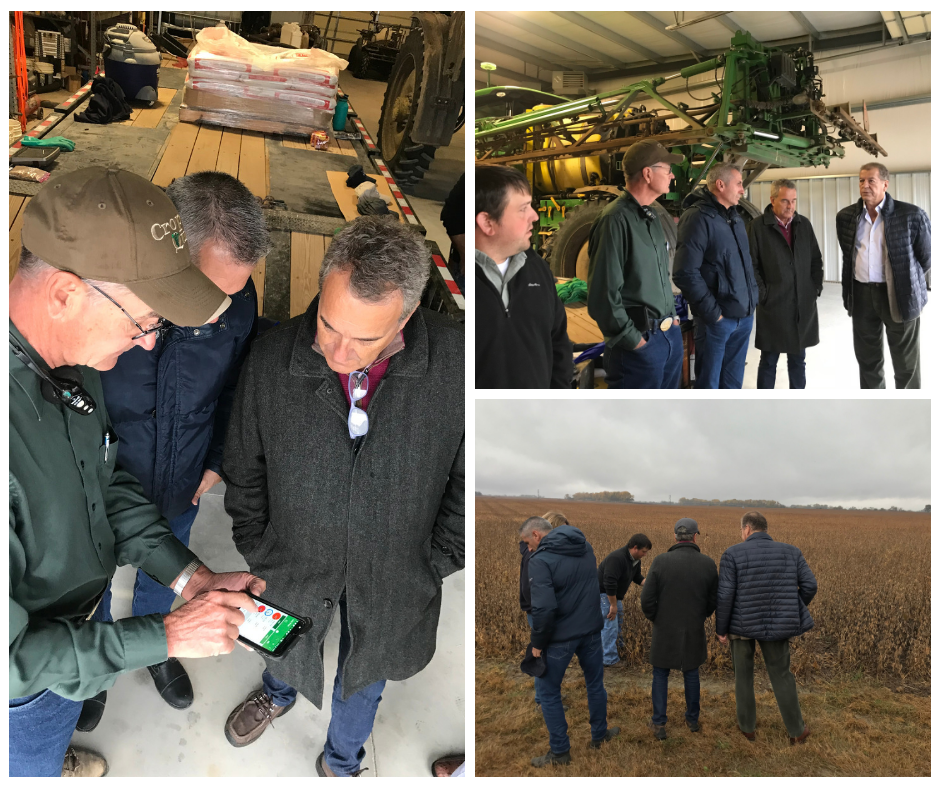
The team visited Splitter Farms outside of Lyons to learn about how they produce corn and sorghum on their farm. The team was fascinated by the large scale of equipment utilized on today’s farms in the U.S. compared to what is used to back in Spain and Portugal. Lee Scheufler was able to show how he manages the farm’s irrigation system directly from an app in his phone.
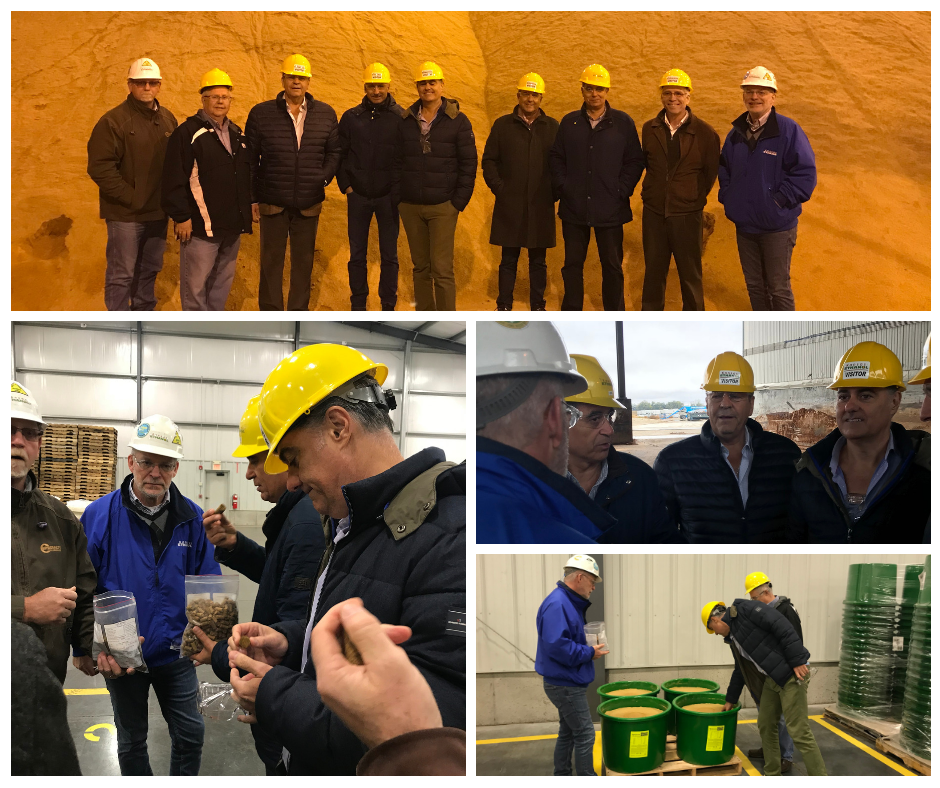
The team didn’t have to travel far for their next stop at Kansas Ethanol in Lyons. “The Kansas Ethanol team had great discussion with representatives from Spain about possibilities of importing distillers grain products directly from Kansas Ethanol to Spain,” said Emily Koop. “It was great to see business in action from the team and samples were planned to be sent over to Spain for them to test.”
The team also visited Cal-Maine Farms near McPherson where they learned about corn and co-products use in poultry diets.
Middle Eastern and North African Regional Trade Team
This trade team included key feed grain importers and end-users from North Africa and Jordan. After attending the Export Exchange in Minneapolis, MN they traveled to Kansas to meet producers, suppliers and exporters while learning more about U.S. production and marketing of feed grains and co-products.
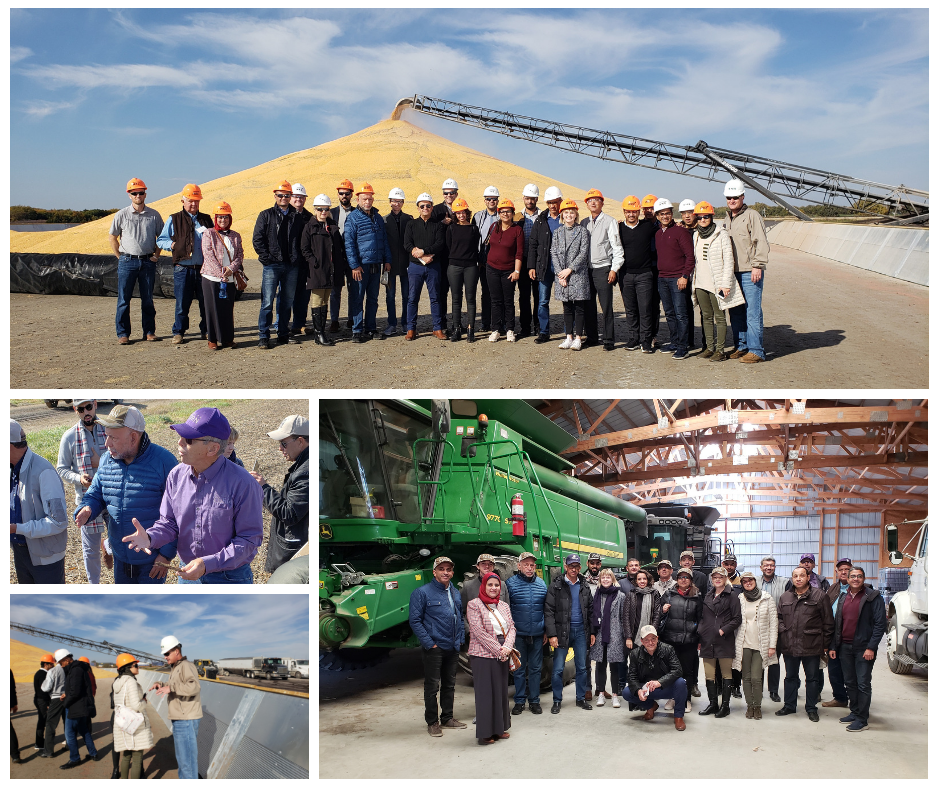
The group toured Vinduska Farms outside of Marion and met with commissioner, Terry Vinduska. While there the group talked about corn production dynamics and how grain moves from the farm to the nearest marketing channels. The group also learned about what factors influence planting decisions and the role of export markets on American farms. They also visited the Team Marketing Alliance Unit Train Loading Facility near Canton to discuss grain unloading, inspection, storage and train loading facilities.
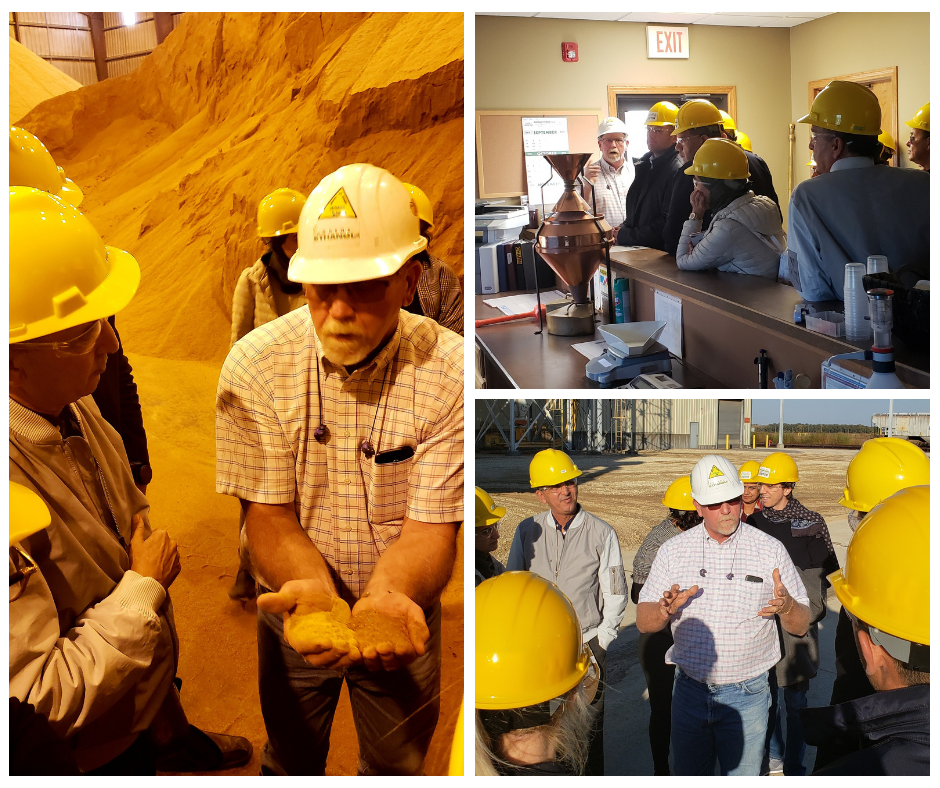 They concluded their tour in Kansas with a trip to the Kansas Ethanol production facility in Lyons where they talked about distillers grains production, quality factors and grain procurement. Other topics of discussion included how distillers grains move to export channels and what factors affect demand.
They concluded their tour in Kansas with a trip to the Kansas Ethanol production facility in Lyons where they talked about distillers grains production, quality factors and grain procurement. Other topics of discussion included how distillers grains move to export channels and what factors affect demand.
